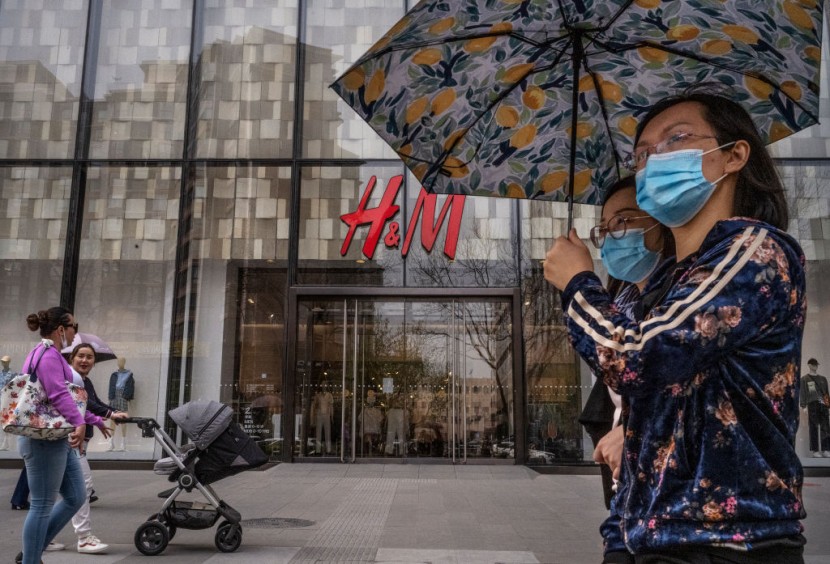
China has accused several large Western brands of selling substandard products that are potentially dangerous to children. A list of 81 items imported by H&M, Zara, and Nike, was published on the country's customs office website.
China began targeting foreign clothing companies in March, as worldwide outrage mounts over allegations of human rights violations in the cotton-growing Xinjiang province. The Xinjiang region is home to the predominantly Muslim Uighur minority group.
According to BBC, China has imprisoned Uighurs in facilities in Xinjiang's northwestern province, where there have been reports of torture, forced labor, and sexual assault.
Several major corporations have voiced alarm over reports that Uighurs are forced to work as slaves, while some Western countries placed sanctions on China earlier this year. The sanctions were imposed in a concerted effort by the European Union, the United Kingdom, the United States, and Canada.
Beijing has disputed the charges of torture, claiming that the camps are designed to re-educate terrorists. China has retaliated by imposing restrictions on Western legislators, scholars, and institutions.
Western products listed in China's customs for containing toxic compounds
Items such as children's apparel, shoes, toys, toothbrushes, and baby bottles were cited during inspections from June 2020 to May 2021, according to China's General Administration of Customs.
Nine batches of H&M girls' cotton dresses are said to contain "dyes or toxic compounds that may be absorbed by the body through the skin, mouth, etc., and endanger health."
The same issue was identified in Zara's imported children's clothing, Nike's boys' t-shirts, and batches of Gap boys' cotton pajamas.
The notice is the latest setback for Western apparel labels operating in China. Online stores of certain companies have been disabled, and their locations have been removed from various digital maps.
H&M and Nike were first targeted, but the list has now expanded to include brands like Burberry, Adidas, and Converse. While H&M's physical locations in China remain open, customers can no longer use an app to hail a taxi to the store or purchase products online. Instead, China is promoting domestic brands.
Read Also: Lawsuit That Accuses Google of Gender Pay Discrimination Granted With Class-Action Status
China customs previously accuse H&M and Zara of selling clothes that risk health
Chinese consumers are urged by officials to remain cautious while purchasing foreign children's products.
Per SCMP, the Chinese social media community reacted positively to Tuesday's customs notice, causing many internet users to urge support for native brands such as Li-Ning and Anta rather than international products.
H&M shuttered one of its flagship locations in Shanghai on May 13 as a result of the initial criticism. It came after Inditex, Zara's parent company, revealed earlier this year that all of its Pull&Bear, Bershka, and Stradivarius stores in China will close this year, Newsweek via MSN reported. GAP is also said to be considering selling its China operations.
This is not the first time H&M and Zara have been named in a safety alert. Chinese customs accused the two brands of importing children's clothing that pose potential health dangers for children. These brands were also cited in a similar notification on May 30, 2020, based on an inspection from January to May last year.
H&M has also suffered other business consequences recently. Chinese celebrities have canceled sponsorship arrangements with the brand, and major Chinese e-commerce sites have withdrawn their products.
Related Article: Supreme Court Denies Johnson & Johnson's Appeal To Throw Out $2 Billion Penalty in Talc Baby Powder Cancer Verdict
@YouTube








